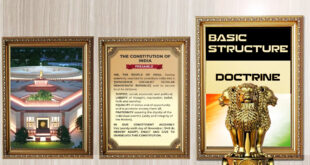One of the low points in Parliament’s history is that when 2,733 Sikhs were massacred in three days in Delhi in November 1984, it did not pass any resolution condemning the killings or even condoling those deaths. This was despite the resolutions sponsored by the Rajiv Gandhi government in January 1985, within days of the formation of the eighth Lok Sabha, condoling Indira Gandhi’s assassination and the deaths in the Bhopal gas tragedy. The Misra commission The omission was compounded in February 1987 when an inquiry report on the 1984 carnage was tabled in Parliament. Misusing its brute majority, the Rajiv Gandhi government prevented any discussion on the report of the Justice Ranganath Misra Commission. This was despite its exoneration of the government and the Congress party and its leaders of any culpability. Such muzzling of Parliament betrayed the government’s own diffidence about the rigour of the clean chit procured by it from an inquiry conducted by a sitting judge of the Supreme Court. Justice Misra went on to become the Chief Justice of India, the first Chairman of the National Human Rights Commission and then a Congress party member of Rajya Sabha. It was not until the Manmohan Singh government tabled the report of another judicial inquiry into the same subject in August 2005 that Parliament had a discussion on the carnage. It was only because Parliament forced the government to accept the Justice G.T. Nanavati Commission’s findings that the FIR that has now resulted in Sajjan Kumar’s conviction — he was Congress MP from the Outer Delhi constituency in 1984 — came to be registered at that belated stage. Interestingly, the same judge who had conducted the second judicial inquiry into the 1984 carnage happened to probe the Gujarat 2002 riots as well. But when Justice Nanavati finally gave his report in November 2014 on the post-Godhra violence, the Bharatiya Janata Party (BJP) government in Gujarat did worse than what the Congress government at the Centre had done with the Misra report in 1987. The Nanavati report on the post-Godhra violence has not even been tabled in the Assembly. That is perhaps only to be expected from a party like the BJP as it is, anyway, perceived to be ideologically communal. How different though is the performance of the Congress, given its pretensions of being a legatee to the secularism of Gandhi and Nehru? The conviction of Kumar this week vindicates the perception that the Congress has a long record of being opportunistically communal. If it took 34 years to convict the first political leader for Delhi 1984, it has a lot to do with the Congress regime’s subversion of institutions to shield the culprits in the early years. To begin with, Rajiv Gandhi did not deem the carnage worthy of an inquiry as he called it a “dead issue”. After deriving political mileage from it in the 1984 Lok Sabha election and the set of Assembly polls in March 1985, he yielded to the inquiry demand as Akali Dal leader Sant Longowal had insisted on it as a pre-condition for talks on the raging Punjab crisis.
Source : https://www.thehindu.com/todays-paper/tp-opinion/between-rhetoric-and-reality/article25785540.ece
 Chinmaya IAS Academy – Current Affairs Chinmaya IAS Academy – Current Affairs
Chinmaya IAS Academy – Current Affairs Chinmaya IAS Academy – Current Affairs



